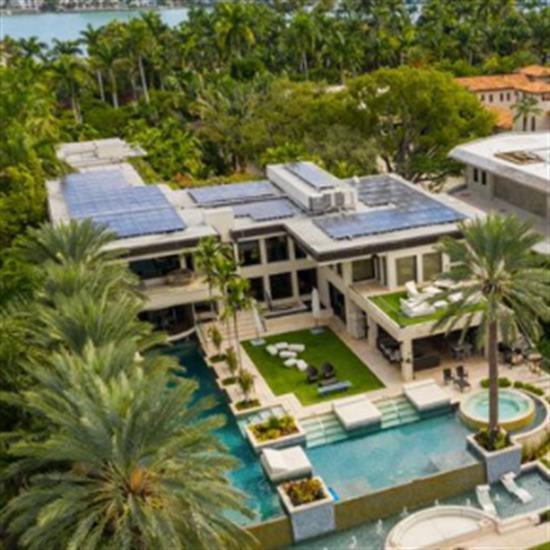CNN Business: Hiking the estate tax will help close the wealth gapCNN Business | By: Congressman Jimmy Gomez
Washington,
November 7, 2019
A nation divided by vast differences in wealth is unhealthy and unstable. A robust estate tax would limit the American aristocracy, narrow the wealth gap and raise revenue for public services essential to those of us who won't inherit a fortune.
As the gap between America's richest 1% and the rest of the country continues to widen, conservative politicians have weakened one of the best tools for combating economic inequality. That tool is the federal estate tax on family fortunes. We should strengthen this tax so the wealthy start paying their fair share.
That's why I have introduced the "For the 99.8% Act," a bill that would strengthen the estate tax so it can restore a measure of fairness to the tax code. An estate tax is levied on the value of a deceased person's estate before it's distributed to the heirs. The bill's title refers to the 99.8% of families whose estates won't pay a nickel in taxes under this proposal but will benefit from the revenue raised instead. The measure, which is companion legislation to the bill introduced by Sen. Bernie Sanders earlier this year, would restore the estate tax to its 2009 levels. A decade ago, estates held by individuals that were worth at least $3.5 million ($7 million for couples) paid the estate tax. Today, due to the Tax Cuts and Jobs Act that came into effect in 2018, estates aren't taxed unless they are worth at least $11.4 million or $22.8 million for couples for the 2019 tax year. While many factors are involved in the growth of income and wealth inequality, the weakening of the estate tax has been a contributor. Though it doesn't prove causation, it's a fact that the decreasingly effective estate tax of the past 50 years has accompanied an increasingly unequal society. Economists and other experts have noted. In 1970, over 5% of all estates were taxable and every dollar in an estate over $10 million was taxed at a rate of 77%. At that time, the bottom half of American society received about a fifth of all the income in the country, around twice as much as the wealthiest 1%. Over the next half century, as the estate tax withered, those shares of national income nearly reversed, with the top 1% now getting a fifth of all income and bottom half only a little over 10%. Around 5,700 estates were taxed in 2009, according to data from the Tax Policy Center. Last year it was only about 1,900. Why raise the estate tax now? Because the gap between the wealthy and the rest of us has reached alarming proportions. The richest 1% own over 40% of the nation's wealth. The country's 400 richest individuals collectively own $2.9 trillion—as much as the bottom two-thirds of Americans. And just three men alone—Jeff Bezos, Warren Buffett and Bill Gates—are worth as much as the whole bottom half of society. The "For the 99.8% Act" would reverse those troubling trends. It would also replace the current flat 40% rate with a progressive scale, starting at 45% on the portion of estates worth between $3.5 million and $10 million and topping out at 77% on everything over a billion dollars. Because every estate would pay a blend of rates (including zero on the exempt amount), the actual percentage paid would be lower than the highest bracket reached. For example, under the current 40% rate, the average effective estate tax rate in 2018 was just 16.5%, both because the first $11.4 million in an individual's estate wasn't taxed at all and because the wealthy employ aggressive tax avoidance strategies. The most notorious of these tax-dodging techniques siphons a fast-appreciating asset (like a tech startup's stock) through a short-term trust known as a GRAT, allowing heirs to receive the asset largely free of estate tax. To cut down on those strategies, this legislation would close the most egregious loopholes in the current law, including the use of GRATs and the low-balling of asset valuations. A common undervaluation occurs when the heirs of a wealthy business owner claim the separate stakes in the business they've received are not readily marketable and therefore they should receive a "minority interest" valuation discount. The hyper wealthy and their lobbyists try to shield vast fortunes from the estate tax by attacking it with phony arguments. They claim that taxing inherited estates amounts to "double taxation" because the money in the estate was subject to income taxes when it was originally received. In fact, most big fortunes are made up of assets that, in the absence of the estate tax, wouldn't be taxed even once. That untaxed wealth is the appreciated value of investments, which is not taxed unless and until the asset is sold. They say small businesses and family farms are threatened, but virtually none of them are valuable enough to trigger the tax. It's estimated that only 20 small farm or business estates paid the tax in 2017. Nevertheless, my bill would offer further protections to family farmers. We could do a lot with the revenue brought in by a reinvigorated estate tax. There isn't a figure yet on what my bill would raise, but a similar plan was recently estimated to increase revenue by $336 billion over 10 years. That's not enough to close the country's wealth gap, but at least it would begin to narrow it. A nation divided by vast differences in wealth is unhealthy and unstable. A robust estate tax would limit the American aristocracy, narrow the wealth gap and raise revenue for public services essential to those of us who won't inherit a fortune. |


